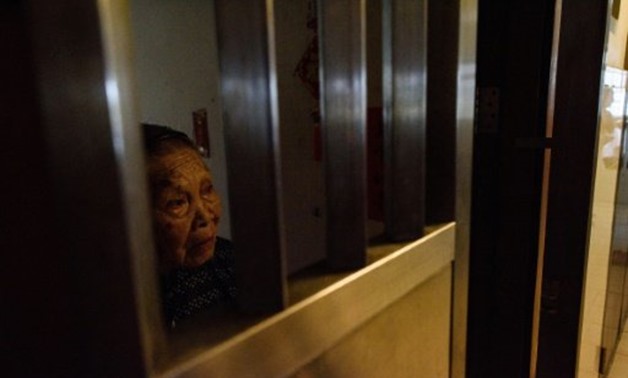
AFP / by Elaine YU | IThe global image of Macau might be the glamour and glitz of the huge casinos, but for many locals, that is a world away from their lives in public housing.
MACAU - 1 September 2017: When Typhoon Hato swept into Macau it exposed a very different side to a city best-known for ostentatious casinos and wealthy high rollers.
Images of people desperately trying to cope with shoulder-high flood waters, torn up roads and smashed buildings gave a window into the lives of the ordinary citizens of Macau, a world away from chandeliered gambling halls.
The storm last week left 10 dead and businesses and homes washed out in the territory's worst typhoon for over 50 years, sparking angry criticism by some residents who said authorities had failed to protect them.
A corruption probe is now looking into whether the enclave's weather bureau failed to raise severe storm warning signals for fear of damaging casino trade.
Macau is listed by Global Finance Magazine as the world's third-richest territory, based on data from the International Monetary Fund.
But between eight and 10 percent of the local population -- around 50,000 people -- live in poverty, says global charity Caritas.
Those who were already struggling in the city say they are now worse off after Hato.
Wong Siu-yee is thankful her family escaped unhurt, but the loss of the family motorbike and car, which were washed away, left her with a bill of MOP$200,000 ($24,800).
It is another setback for Wong who relies on her eldest son's salary and charity donations to supplement her monthly wage of between MOP$1,000 ($124) to $5,000 ($620), which she earns working part-time as a cleaner and caterer.
"We hustle for our two meals each day...it's hard when you are a single mother," said Wong, in her late 40s.
Since the storm, anxious Wong rations the family's diet of canned foods and cheap dried-out vegetables even more carefully as she lives in fear of another typhoon.
"Maybe this disaster is a warning for Macau to plan its city better," she told AFP.
- 'Little hope' -
Paul Pun, who heads the Macau branch of Caritas, says while the local government has strengthened its poverty relief efforts in recent years -- including setting up food banks -- the wealth gap remains too wide.
Tourism, rising property values and an economy dominated by the gambling industry have buoyed the rich while disposable income for the poor has dwindled due to higher prices, despite casinos providing new jobs, he told AFP.
Pun says many of the enclave's decision-makers are businessmen with an eye on profit rather than looking at what he calls "the health of Macau" and its long-term development.
While the government has a number of measures to help those in need, including subsistence allowances, Pun believes it does not go far enough.
Those who are able to afford to buy a house have little hope of ever paying off the mortgage, however hard they work, and local businesses lack support.
"The procedures for tackling the urgent needs of small and medium-sized enterprises are slow and subject to long waits," says Pun.
"But (the government) is very efficient when it comes to the gambling industry."
- Economy first -
Shopkeeper Song Wai-ho's store, stacked with delicate household goods, from porcelain bowls to expensive Japanese knives, is still awash with sludge after being flooded out by the typhoon, with the repair bill estimated at MOP$500,000 ($62,000).
Although the government has offered to lend money to battered stores like his, Song, 45, said he would rather authorities made long-term practical improvements that would safeguard ordinary residents.
"If the government could build a floodgate, that would be better than lending me money," he told AFP.
Song dismissed government promises to upgrade Macau's outdated infrastructure -- from building storm drains to completing a much delayed light rail network -- as "useless talk".
"They have to actually do it, not just say it," he said.
For some, the challenge of starting again after Hato seems insurmountable.
The storm washed away the Chung family store's valuable stock of Chinese medicines in which they had invested their entire fortune, believing they would only appreciate in value.
"All our medicines were here. Now all my savings are wiped out," said Mrs. Chung, 63.
She hoped they would be granted emergency funds by the government, but doubted they would cover the family's losses.
As the casinos recover swiftly and tourists return, Pun says Hato exposed the reality of government priorities.
"They didn't put the safety of Macau's people first," he said.


Comments
Leave a Comment